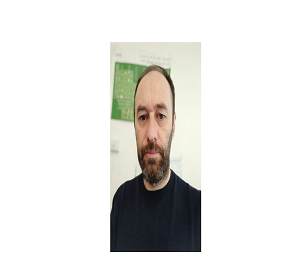
Dr. Michele Casiello
ItalyTitle: New Biobased Polycarbonates with Curcumin in Replacement of Bisphenol A and Recycled Diphenyl Carbonate
Abstract:
The increasing level of plastic wastes in the environment is an urgent problem that needs fast responses. Actually, politics and researchers are pursuing two different strategies to reduce plastic dispersal: i) recycling of plastic items, and ii) incineration of plastic wastes [1]. In my recent work [2] me and my research group developed a way to convert polycarbonate (PC) containing bisphenol A (BPA) in a new polymer with Curcumin (CM) instead BPA: Curcumin is a natural polyphenol well-known for its antioxidant and pharmaceutical properties, that can represent a renewable alternative to bisphenol A for the synthesis of biobased polycarbonates. In the presented strategy, preparation of the CM-based PC was coupled with chemical recycling of the fossil-based BPA polycarbonate (BPA-PC) conducting a two- steps trans-polymerization that replaces BPA monomer with CM or its tetrahydrogenated colorless product (THCM). In the first step of synthetic strategy, depolymerization of commercial BPA-PC was carried out with phenol as nucleophile, according to our previous work [3] based on zinc derivatives and ionic liquids as catalysts, thus producing quantitatively diphenyl carbonate (DPC) and BPA. In the second step, DPC underwent a melt transesterification with CM or THCM monomers affording the corresponding bio-based polycarbonates, CM-PC and THCM-PC, respectively
Biography:
Michele Casiello currently works at the Department of Chemisty, Università degli Studi di Bari Aldo Moro. Michele does research in Organic Chemistry, Catalysis, Environmental Chemistry and Green Chemistry. His recent project involved the collaboration with Arcelor Mittal a multinational steel manufacturing for the development of MIDREX process in the production of steel. His most recent publication is “Steel slag as low-cost catalyst for artificial photosynthesis to convert CO2 and water into hydrogen and methanol.”
